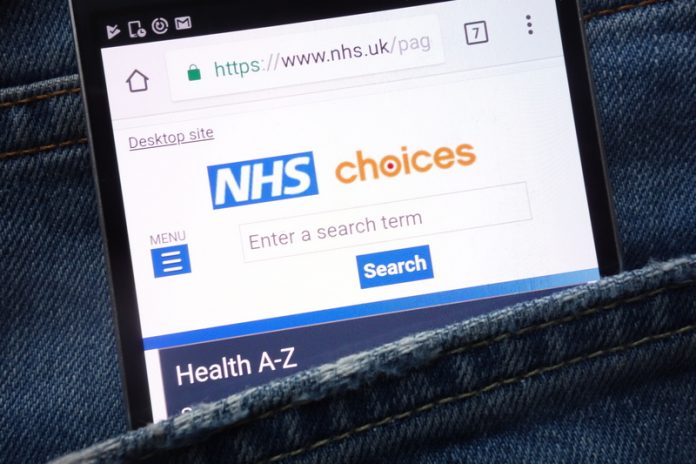Baroness Blackwood, Parliamentary Under Secretary of State (Lords) at the Department of Health and Social Care in the UK explains the enormous potential of technology to build the most advanced health and care system in the world
We’re incredibly proud of our National Health Service. Open to all, based on need and not ability to pay, it embodies the responsibility we have to one another across society.
Along with many countries around the world, we face the challenge of an ageing society with people living longer than before and with more complex health conditions.
We need our health service to keep up. As part of a new Long Term Plan for the NHS, the UK Government has recently committed to invest an extra £33.9 billion a year by 2023/24 to make the health system fit for the future. A large part of the plan focuses on harnessing the enormous potential of technology to build the most advanced health and care system in the world.
It’s the right thing to do – better tech means better healthcare. An app which gives paramedics access to your medical records when you dial for an ambulance can save your life. Data-driven AI that can compare millions of pharmaceutical compounds is already helping medical researchers develop new treatments and medicines quicker than ever before, helping to improve the lives of patients across the UK. If we can digitise repetitive admin tasks, we can free up doctors and nurses to spend more time with patients.
Last autumn we published our first ever Tech Vision for the NHS. The purpose of the Vision is to make the technical infrastructure that underpins our healthcare system more like the technology underpinning the internet. It’s our plan for an NHS that’s open and interoperable, continuously upgrading itself with the latest innovations, capable of constant improvement.
Standards and interoperability
This all starts with getting the basics right. Instead of disconnected systems, we need systems that talk to each other because we know that when systems are not interoperable people suffer.
It shouldn’t matter where you are in the NHS, whether it’s a hospital, a doctor’s surgery or an out-of-hours setting, you and your clinician should be able to access your medical record, just as you can access your email from any device.
To solve this, we are not going to create a giant centrally held database of all 65 million NHS patients. These kinds of approaches have been tried and failed in the past. Instead, we will design, agree and mandate common technical standards so that interoperability is designed in from the start. It will mean, for example, that suppliers cannot sell to the NHS unless they meet our standards, guaranteeing high-quality systems which will be designed around the needs of clinicians and patients.
AI Code of Conduct
The NHS, in its 70-year history, has one of the richest data pools in the world and there is enormous potential for researchers, academics and innovators to use this resource to unlock solutions to some of healthcare’s biggest challenges through artificial intelligence (AI) and machine learning.
Imperial College London has recently developed an AI system which can predict the prognosis of patients with ovarian cancer more accurately than current methods – and it can estimate which treatments would be most effective for patients following a diagnosis.
This type of innovation and the potential of personalised medicines is revolutionary and could save thousands of lives in the future. But it is also absolutely crucial that our data is used in a sensible and responsible way. Our new Code of Conduct for Data-Driven systems encourages technology companies to meet a gold standard set of principles to protect patient data to the highest standards. It will also mean the NHS is fairly rewarded when companies profit from NHS data.
The National Data Guardian (NDG) will play a pivotal role in this by helping to ensure that patients’ confidential information is safeguarded securely and used ethically.
Creating a healthtech ecosystem within and around the NHS
We also want the NHS to adopt and invent the latest healthtech innovations. This is partly about how we design our technical architecture. Instead of monolithic systems where one company does all the data, the hosting, the interface and so on – with no incentive to keep up to date – we want modular systems where the different components can be swapped in and out as technology evolves and without us having to rebuild the underlying plumbing each time. This is why standards – the rules for how we build and whom we buy from – are so important.
Crucially, we want to use the power of openness to level the playing field between challengers and incumbents. It’s why all of our technical standards will be published on the web. We want everyone in the healthtech to see our requirements so that anyone with the skills and know-how can build for the NHS.
And once a good idea has been proven we want to be able to spread it much faster. So for example, healthtech companies that jump through all the hoops to sell into one part of the NHS should not have to repeat the whole process with a different hospital just up the road.
NHSX
Driving all this through will not be easy, and it requires leadership. It’s why earlier this year, the Health Secretary, The Rt Hon Matt Hancock MP, announced the creation of NHSX: a new joint unit among our central health bodies tasked with delivering our Tech Vision.
NHSX is bringing together tech policy levers, powers and funding that have been previously been spread across the NHS, concentrating them into one strong team and one decision-making point. Quite simply, it will mean we can get things done more efficiently and patients can benefit from cutting-edge innovations as soon as possible.
© Crown copyright
Baroness Blackwood
Parliamentary Under Secretary of State (Lords)
Department of Health and Social Care
Tel: +44 (0)207 210 4850
https://www.gov.uk/government/organisations/department-ofhealth-and-social-care











